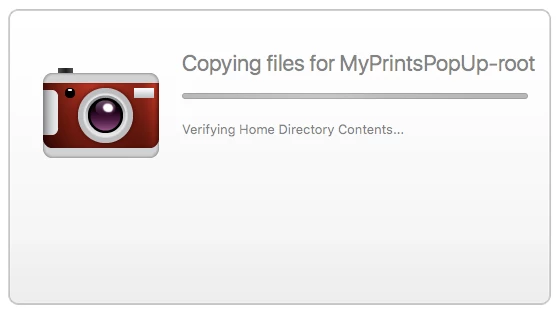@HelpDeskWarrior No worries! Trust me, we know how that goes! When you do get back around to it, try not finishing your composer snapshot until after you've launched the client and those installers finish.
@Chris_Hafner To clarify, those extra installer bits happen immediately and very quickly post installation, after that I then complete the Composer snapshot.
Update...
Our team leader re-tried doing a ROOT install of the popup software on the base image and the popup now works as required when that image is rolled out. I am not sure why it didn't work for me as I tested it pretty thoroughly. The only possible difference is that I worked with an image that was already registered in Casper whereas my colleague used the 'pristine' base image. Not sure why this would matter though. At least we now have something to work with.
Based on your collective input here though, when time allows I am going to follow through with Fuji Xerox on the software install difficulties. Ultimately we still need it to be installable post imaging.
Thanks for all your help so far. I will update the ticket with any further findings down the track.
Well that's good news at least. In that case, I'd suspect the same thing as you allude to. There must be some difference between OSs. Regardless, give em' heck!
@HelpDeskWarrior it seems like you're already on a good path, but I'll offer a little bit of additional advice.
- Document this entire process and experience in detail
- Create an executive summary version that's no more than one page and favors bulletpoints over paragraphs
- Send the executive summary to your supervisor, whomever purchased the printer, and possibly to your Xerox representatives
As @mm2270 pointed out, this software is simply terrible and a significant security risk. You have a known-bad developer's Java code running as root on your computers. It would be a relatively safe statement to say that "all bets are off" from a security perspective.
Having this documentation and informing your superior(s) of the risks protects you from taking the blame if and when something goes horribly wrong.
No expert should ever be afraid to tell the people who hired them for their expertise when they're about to do or demand something incredibly stupid. Whether they will say it in as many words or not will vary based on the individuals' ego, but that's a big part of why people hire experts. Of course, this information needs to be relayed professionally and tactfully. It's not a good career move in most cases to go around telling your bosses that they are idiots. Snark and superiority are common traits amongst professional computer nerds. To be successful it is incredibly helpful to develop some good communication skills.

